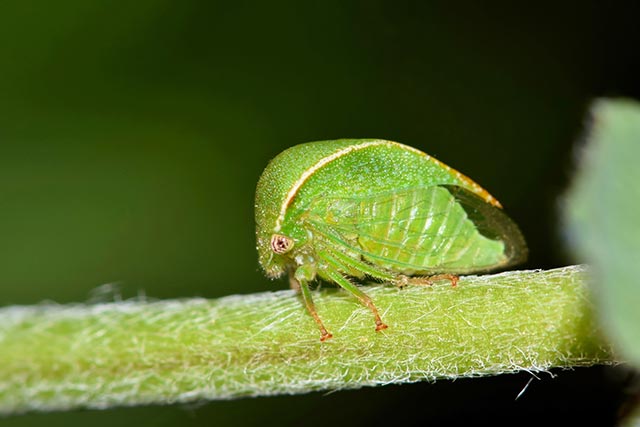
Advertisement
The arrogance of human beings is simply astounding. Despite the clear evidence that tinkering with the natural balance of the environment is an epic failure – every time – scientists just keep coming up with new ways to interfere with what is essentially a perfectly balanced, self-sustaining system. From manipulating the weather to dousing crops with toxic chemicals, well-meaning but deluded researchers just keep blundering from one disaster to the other. And they never seem to learn their lesson.
The latest in a long list of agricultural ideas guaranteed to cause immeasurable environmental harm is the concept of using plant viruses to deliver pesticides deep within the soil, supposedly to reduce pesticide use, keep plants healthy and ward off pests.
While the aims of the study are admirable in that the researchers were looking for ways to reduce pesticide use and toxicity to the environment, is less poison really the solution? Surely we should be looking for ways to protect food crops without using toxic chemicals to reduce insect damage?
The research was conducted by scientists from the University of California San Diego and Case Western Reserve University, and was published in the journal Nature Nanotechnology.
What the scientists propose
Chemical pesticides are commonly sprayed on crops to repel insects and maximize plant health. The problem, as Science Daily explains, is that pesticides are very sticky and bind tightly to organic matter in the soil which makes getting them to penetrate deep enough to reach the roots, where certain pests live, very difficult.
To get around this problem, farmers spray huge doses of pesticides in the hopes that some of it will penetrate the soil.
Science Daily explains that the researchers experimented with different plant viruses to see which ones could deliver pesticides deep within the soil, hoping that doing so would mean the pesticides could reach their target audience directly. This would mean that farmers could spray fewer pesticides above ground:
In lab tests, the researchers attached a model insecticide to different types of nanoparticles and watered them through columns of soil.
Tobacco mild green mosaic virus outperformed most of the other nanoparticles tested in the study. It carried its cargo down to 30 centimeters below the surface. PLGA and mesoporous silica nanoparticles, which researchers have studied for pesticide and fertilizer delivery, carried their payloads 8 and 12 centimeters deep, respectively.
Other plant viruses were also tested. Cowpea mosaic virus also carried its payload 30 centimeters deep below the surface, but it can only carry a fraction of the payload that Tobacco mild green mosaic virus can carry.
Is pumping the soil full of viruses and pesticides a good idea?
After just a little consideration, several concerns spring to mind:
Have pesticides not already done enough damage to insect populations, including the bees we so urgently need to sustain our food supply? Should we really be looking for new ways to destroy and repel pests, upsetting nature’s perfect balance even more?
And, have we not been given enough evidence of the harm pesticides cause to animals, humans and the environment already?
Pesticides are incredibly harmful to human health. Pesticides have been proven to cause reproductive and developmental effects, cancer, kidney and liver damage, endocrine disruption, etc. …
Children, whose bodies are still developing, are particularly vulnerable. They take in pesticides at home and daycare and at schools and playgrounds, as kids are more likely to crawl on the ground and put their contaminated hands in their mouths. Research shows that children are even exposed to pesticides in utero. One of these pesticides, chlorpyrifos, has been found to cause irreversible brain damage in infants when they are exposed to the insecticide during this period.
And, what are the potential risks of injecting viruses into plants that will later be consumed by humans? Is that risk really one worth taking?
Certainly, a lot more thought needs to be given to this idea before it is launched on the environment.
Learn more about the effects of pesticides on the environment at Environ.news.
Sources include:
Advertisements







